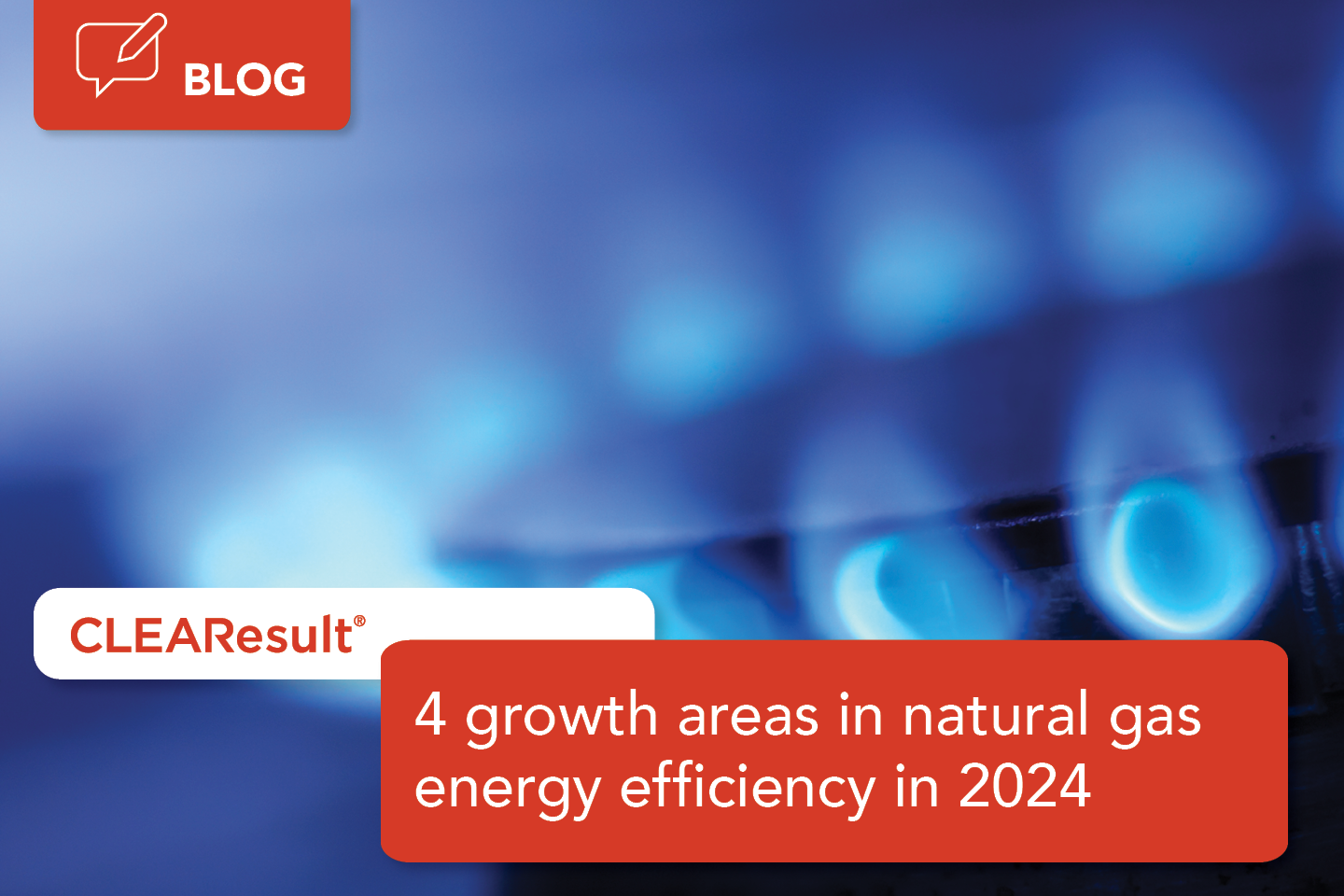4 growth areas in natural gas energy efficiency and decarbonization in 2024

This content was originally featured in our 2024 Energy Efficiency Outlook Report. Check out the full report for more.
While electrification is expected to play a huge role in decarbonization efforts this year, in some regions, electrification may not be the most cost-effective option due to significant variations in natural gas prices. In states or territories where natural gas is very inexpensive, a move toward electricity does not make financial sense for customers.
This can be especially true for low-income customers who cannot afford new appliances, HVAC or electrical panel upgrades. In many areas and communities, gas efficiency programs are still a necessary focus for helping customers lower their energy use, save money and reduce their carbon footprint. In 2024, we expect to see the growth of innovative technologies and pathways that hold great promise for substantial gas savings:
Gas absorption heat pumps (GAHPs)
GAHPs are not new technology, and are used more widely in Europe, but have recently gained more attention and traction in North America. Like other heat pumps, GAHPs are extremely efficient and exhibit much higher performance than conventional gas equipment, such as boilers. Piloted in some of our programs, GAHPs have proved to be an effective measure for gas savings, particularly as traditional gas-fired boilers and furnaces face increasing baselines.
FortisBC, one of our clients, has integrated GAHPs into its commercial portfolio and collaborated with us on a Best Practices Guide to help educate contractors, commercial businesses and utilities. We are confident that GAHPs will have a strong position in gas energy efficiency programs for years to come.
Hydrogen
Many gas utilities are investing in research and development around hydrogen as both a generation and a local power resource. Blending hydrogen into natural gas pipelines could reduce emissions while using the existing infrastructure. Addressing significant market changes like these requires a shift in customer expectations, and gas efficiency programs will play a vital role in engaging and educating customers.
Fuel transition
Approximately 5 million homes across the U.S. still rely on propane, kerosene and other delivered fuels for home heating or water heating. The volatile pricing and a shrinking market for installers and servicers pose challenges for these customers, particularly for those in lower income brackets. Propane and home heating oil are, respectively, 19 and 40 times more carbon intense than natural gas. If able, utilities should quickly transition vulnerable customers away from these higher polluting delivered fuels. While it doesn’t align directly with national goals for electrification, reducing delivered fuels will contribute significantly to overall decarbonization and energy efficiency efforts.
Mid-year update: Combined heat and power
Another measure growing in popularity in gas energy efficiency programs is combined heat and power (CHP). Also known as cogeneration, CHP is a technology that uses gas to produce electricity but also harnesses the thermal energy created during production to generate steam or hot water for other uses. By not wasting the heat generated from electricity production, CHP systems can be much more efficient than traditional configurations that might have a separate power generation and a boiler to create hot water or steam. This increase in efficiency also helps reduce greenhouse gas (GHG) emissions as less overall fuel is being used to generate power and hot water.
CHP has wide-ranging applications in the commercial and industrial space, where it can reduce energy costs, reduce the amount of large equipment a facility needs, and provide a resiliency source of electricity production.
Take action
Natural gas utilities and other energy efficiency stakeholders can stay prepared for these shifting trends by:
- Monitor energy prices: As prices continue to change for multiple fuel options, so will customers' habits. Track pricing trends in your region or territory to ensure that existing plans are pursuing the most cost-effective courses for consumers.
- Advocate for gas efficiency programs: Some states and municipalities are taking aggressive approaches when it comes to natural gas, with some even banning new gas hookups, pipelines or gas in new construction. In other areas, legislation is being passed to prevent these bans. It is important for utilities to continue to advocate for gas energy efficiency in all regions as a key part of our overall energy transition journey.